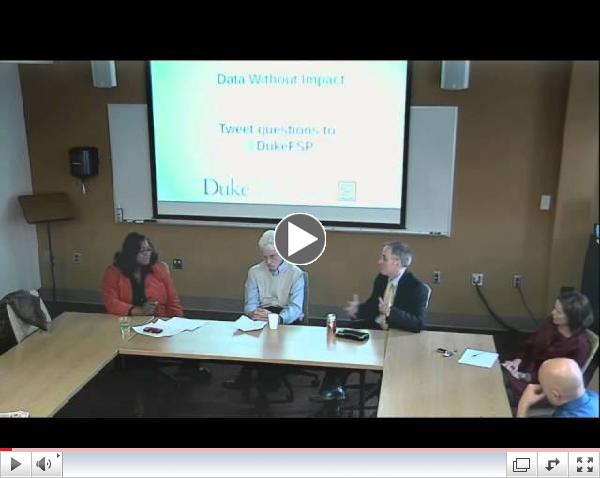|
|
|
Nicholas Institute for Environmental Policy Solutions - March 3, 2015
|
|
 | |
Data Without Impact: When Politics and Evidence Collide
|
|
|
|
|
|
Our Impact: Guidebook Facilitates Ecosystem Services Assessment
A few years ago, the U.S. Forest Service, U.S. Department of the Interior, the U.S. Army Corps of Engineers, and a handful of other federal agencies began exploring methods to robustly evaluate how natural resource management choices affect things people care about and to clearly communicate those connections to the public. Ecosystem services assessment offers an answer if communication, consistency and capacity issues among practitioners need to be resolved. In the third installment of our 12-part series highlighting the environmental policy impacts of the Nicholas Institute for Environmental Policy Solutions over its first decade, we describe our leadership in the development of an online guidebook that provides a framework and methodology to bridge the gap between concept and practice, helping federal agencies advance the use of ecosystem services approaches to planning and management where desired.
|
|
Economic Impacts of Ocean Acidification
Ocean acidification is a global problem requiring carbon dioxide reduction at a scope and scale that will take decades to accomplish. A new study published in Nature Climate Change, and co-authored by the Nicholas Institute's Linwood Pendleton, offers the first nationwide look at the vulnerability of our country's $1 billion shellfish industry to oceans' increasing acidification due to absorption of carbon dioxide from the atmosphere. Pendleton highlights the study's findings in our Q&A.
|
|
Path to Paris: Reducing GHGs
Under the United Nations Framework Convention on Climate Change, countries will gather in Paris in December to finalize a new international agreement to take action on climate change. At a webinar hosted by Resources for the Future, faculty fellow Billy Pizer was one of four presenters discussing a new method for comparing intended nationally determined contributions, the actions each country will take to reduce its greenhouse gas emissions. The method is based on work by a team from Duke University, Harvard University, Resources for the Future, and Japan's Research Institute of Innovative Technology for the Earth.
|
|
Policies' Effect on Pellet Production
Current European Union policies requiring renewable and low greenhouse gas-emitting energy are affecting timber markets and forests in the United States. A new report co-authored by the Nicholas Institute's Christopher Galik looks at increases in pellet and other bioenergy demand in the U.S. South. It suggests that timber prices will increase as harvests increase, leading to long-term changes in inventory and forest land area.
|
|
Legal Issues of Proposed 111(d) Rule
At the 21st Annual Public Interest Environmental Conference, Climate and Energy Program director Jonas Monast participated in a panel on the U.S. Environmental Protection Agency's proposed section 111(d) rule on regulating greenhouse gas emissions from power plants. He addressed the rule's several legal issues, including the EPA's legal authority under the Clean Air Act to regulate greenhouse gas emissions, the likelihood of legal challenges to the new regulation and the relationship of the proposed rule to EPA's tailoring rule on greenhouse gas emissions.
|
|
The Nicholas Institute for Environmental Policy Solutions helps decision makers create timely, effective, and economically practical solutions to the world's critical environmental challenges.
|
|
|
|
|
|
|
|
|
|
Nicholas Institute for Environmental Policy Solutions, Duke University,
P.O. Box 90335, Durham, NC 27708.
|
|
|